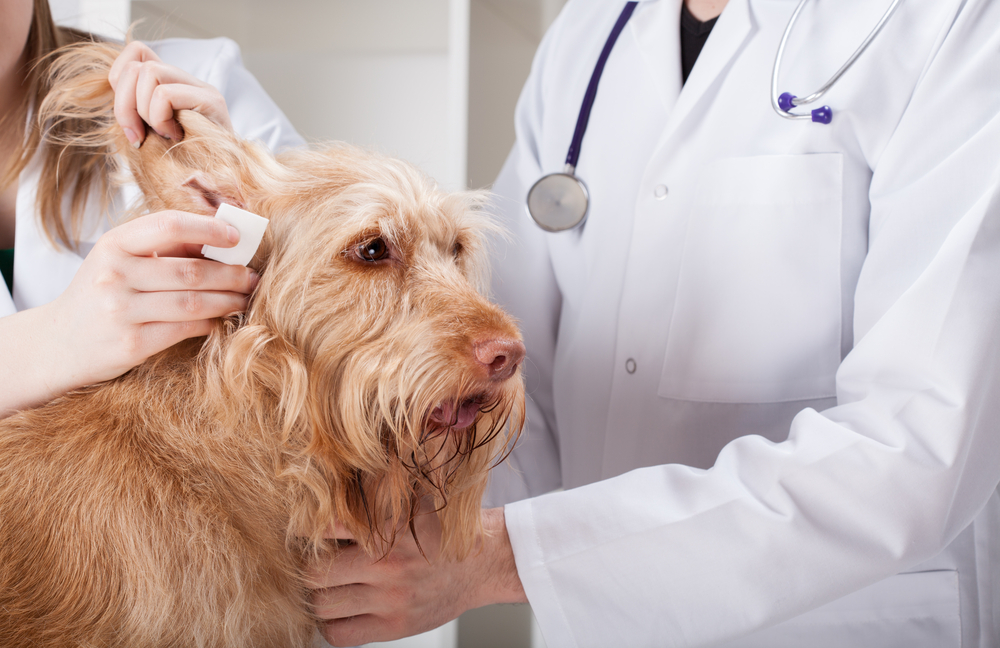
Ear infections are a common issue for pets, especially dogs and cats with floppy ears or allergies. While they may start as a mild irritation, untreated ear infections can quickly lead to pain, discomfort, and more serious health problems.
Common Causes of Ear Infections in Pets
Ear infections in pets can be caused by several factors, including:
Bacteria or yeast: The most common culprits, these microorganisms can overgrow in the moist, warm environment of your pet’s ears.
Allergies: Pets with food or environmental allergies are more prone to developing chronic ear infections.
Ear mites: These tiny parasites are more common in cats and can lead to severe itching and infection.
Foreign bodies: Grass seeds or other debris can become lodged in the ear canal, causing inflammation.
Underlying medical conditions: Endocrine disorders like hypothyroidism can increase the likelihood of infections.
Moisture: Frequent swimming or bathing can cause water to build up in the ears, promoting bacterial growth.
Signs Your Pet May Have an Ear Infection
It is important to recognize the symptoms of an ear infection early so treatment can begin promptly. Common signs include:
Scratching or pawing at the ears
Head shaking or tilting
Redness or swelling around the ear
Unpleasant odor from the ears
Dark discharge or wax buildup
Sensitivity when the ears are touched
Balance issues or disorientation in more severe cases
How Springwood Veterinary Hospital Treats Ear Infections
When you bring your pet to Springwood Veterinary Hospital with an ear infection, we perform a thorough examination that may include an ear swab to identify the cause of the infection. Based on the diagnosis, we tailor a treatment plan that may involve:
Cleaning the ears to remove debris and discharge
Topical medications to address bacterial or fungal infections
Oral medications for more severe or systemic infections
Treatment of underlying issues such as allergies or parasites
Urgent care if your pet is in significant pain or the infection has progressed
Prompt treatment is crucial to prevent the infection from worsening or causing permanent damage to the ear structures.
Get in Touch with Springwood Veterinary Hospital
Ear infections in pets are not only uncomfortable but can also lead to more serious complications if not treated promptly. By recognizing the signs early and seeking veterinary care, you can help your pet recover quickly and avoid chronic ear issues.
If your pet is showing signs of an ear infection, contact Springwood Veterinary Hospital today. Visit our office in Spring, Texas, or call (281) 370-3262 for further guidance.









